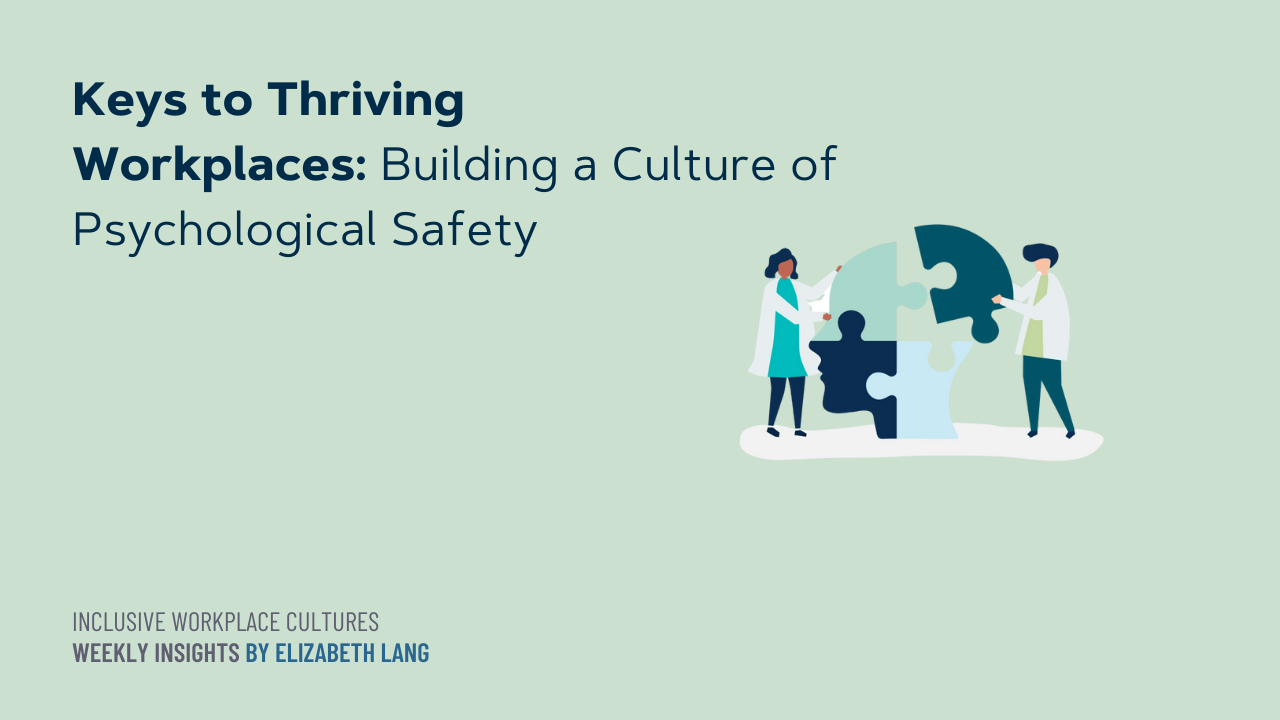In today’s fast-paced and demanding work environment, it’s more important than ever for organisations to prioritise the mental health and well-being of their employees. One critical aspect of this is creating a workplace that prioritises psychological safety.
But what exactly is psychological safety? It’s the belief that one can express their thoughts, opinions, and ideas in a work environment without fear of punishment, ridicule, or humiliation. It’s the sense of trust and inclusion that allows employees to feel comfortable being themselves at work.
The benefits of psychological safety in the workplace are numerous. Research has shown that when employees feel safe to speak up, they are more likely to be engaged, creative, productive, and experience lower levels of stress and burnout. This in turn leads to increased job satisfaction and a stronger sense of loyalty to the organisation.
Open and Effective Communication
In order for employees to feel psychologically safe, it must be created and nurtured. One of the key drivers of psychological safety is open and effective communication. Encouraging employees to share their thoughts and ideas, and valuing their contributions, can help foster a culture of trust and inclusivity.
Leaders can exemplify psychological safety by creating a positive and inclusive work environment. They can set an example by treating everyone with respect, actively listening to all voices, encouraging open dialogue, and providing support and feedback. It’s also important for leaders to take the time to get to know their team, understand their needs and recognise their accomplishments. Additionally, leaders can prioritise employee well-being and create an environment where mistakes are seen as a learning opportunity rather than a source of blame.
Addressing and Preventing Conflict
Another important factor in creating a psychologically safe workplace is addressing and preventing conflict. When conflicts are allowed to fester, they can have a toxic impact on the work environment and negatively affect employee well-being. Leaders play a crucial role in leading by example.
In the professional world, conflict is inevitable. However, the way in which leaders choose to handle these situations can have a lasting impact on their teams and work environment.
I once worked with an executive who had a difficult time facing and addressing conflict in the workplace. Their tendency to avoid confrontation only served to magnify the problems and make them more challenging to resolve. As leaders, it is crucial to tackling conflict head-on to prevent the escalation of problematic attitudes and behaviours. In this particular instance, a team member who disregarded a senior staff member’s authority became increasingly emboldened due to a lack of accountability. This eventually resulted in the use of sexist language and actions towards a female executive, who became the sole target of this unacceptable behaviour in the project team.
Sadly, this type of situation is not uncommon. But when left unchecked, it sets a dangerous precedent that becomes increasingly difficult to change over time. It’s important for leaders to recognise the significance of addressing conflict in a timely and effective manner, as it can have a profound impact on the well-being and productivity of their teams.
The role of employees in addressing conflict
Providing opportunities for employees to discuss and resolve conflicts in a constructive and supportive manner is also critical to help prevent tensions from intensifying and to maintain a positive work environment. A key marker of a psychologically safe workplace is employees’ confidence and willingness to address and resolve conflict. When employees feel secure to engage in dialogue about challenging issues, it promotes a healthier working environment and encourages constructive conversation instead of resistance.
Preventing bullying, harassment, and discrimination
It’s also important to address and prevent bullying, harassment, and discrimination in the workplace. This can be achieved through clear policies, training, and a zero-tolerance approach. Employees should feel confident that any incidents will be taken seriously and addressed promptly, creating a safer and more inclusive work environment.
The importance of psychological safety in the workplace cannot be overstated. When employees feel valued, respected, and supported, they are more likely to be productive, creative, and engaged. Organisations that prioritise psychological safety will not only improve employee well-being but also drive business success. By investing in a safe and supportive work environment, organisations can foster a culture of trust, respect, and inclusiveness that benefits everyone.
To build a psychologically safe, equitable and inclusive workplace culture, contact us today and let’s embark on the journey together.

